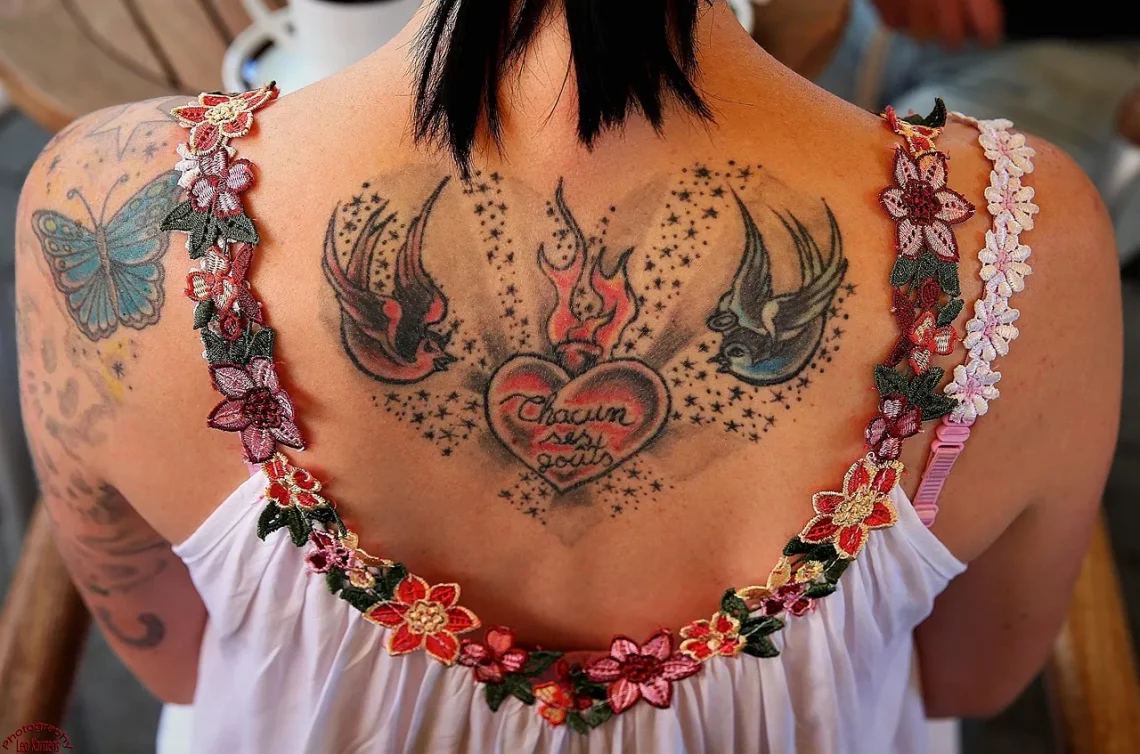
The Meaning and Impact of a Cross Tattoo on the Face
Tattoos have long been a form of self-expression, serving as a canvas for personal stories, beliefs, and aesthetics. Among the various designs, cross tattoos hold a significant place, especially when inked on the face. The face is one of the most visible parts of the human body, making any tattoo placed there a statement piece. Cross tattoos, in particular, carry deep meanings that resonate with individuals on various levels, symbolizing faith, sacrifice, and personal transformation.
The choice to tattoo a cross on the face goes beyond mere aesthetics; it often reflects profound convictions or experiences. For many, it may represent a commitment to their faith or a tribute to a loved one who has passed away. The visibility of the tattoo also invites interactions and conversations, allowing individuals to share their stories and beliefs with others. However, such a bold choice can also lead to societal judgments and preconceived notions, highlighting the dual nature of tattoos as both personal expressions and social markers.
As tattoos continue to evolve in societal acceptance and significance, understanding the implications of a facial cross tattoo is essential for those considering this path. The following sections will delve into the various meanings associated with cross tattoos, the societal impact of facial tattoos, and the personal journey behind such a significant choice.
The Symbolic Meaning of Cross Tattoos
Cross tattoos are rich in symbolism, primarily rooted in cultural and religious contexts. The cross itself is a universally recognized symbol of Christianity, representing the crucifixion of Jesus Christ and the belief in resurrection and salvation. For many Christians, a cross tattoo serves as a constant reminder of their faith, a personal declaration of their beliefs, and a way to carry their spirituality with them at all times.
However, the meaning of a cross tattoo can extend beyond religious connotations. Many individuals interpret the cross as a symbol of hope, love, and sacrifice. It can represent personal struggles and the triumph over adversity, embodying the idea that one can rise above challenges, much like the resurrection symbolizes victory over death.
Culturally, the cross has been adopted by various groups and movements, each adding layers to its meaning. In some cases, it can symbolize rebellion or a break from traditional norms, particularly when inked in unconventional styles or placements. This duality highlights the complexity of tattoos as a form of expression, where a single design can evoke various interpretations depending on the wearer’s background and intentions.
When considering a cross tattoo on the face, it’s essential to reflect on what the symbol represents to the individual. The permanence of a facial tattoo means that its meaning will be closely tied to the person’s identity and experiences. This reflection can lead to a deeper understanding of oneself and the values one wishes to project to the world.
The Societal Perception of Facial Tattoos
Facial tattoos have historically been met with mixed reactions, often influenced by cultural norms, societal standards, and personal biases. While tattoos have gained increased acceptance over the years, facial tattoos remain a contentious issue. Many people view facial tattoos as a bold statement, often associating them with rebellion, nonconformity, or a specific lifestyle.
In professional and social contexts, individuals with facial tattoos may face stigma or discrimination. Employers in conservative fields may view facial tattoos as unprofessional, potentially limiting job opportunities. This societal perception can have a profound impact on the lives of those who choose to adorn their faces with ink, creating a tension between personal expression and societal acceptance.
On the other hand, some communities celebrate facial tattoos as a form of art and self-identity. In subcultures where tattooing is embraced, a cross tattoo on the face can signify belonging and solidarity. These contrasting viewpoints highlight the ongoing evolution of tattoo culture and the shifting paradigms surrounding body art.
Moreover, the visibility of facial tattoos often invites curiosity and conversation. While this can lead to misunderstandings or assumptions, it also provides an opportunity for individuals to share their stories and challenge societal norms. By openly discussing their tattoos, wearers can educate others about the meanings behind them, fostering a greater understanding and acceptance of diverse forms of self-expression.
Ultimately, the decision to get a cross tattoo on the face should be made with careful consideration of the potential societal implications. Individuals must weigh their desire for self-expression against the realities of how they may be perceived in various environments.
The Personal Journey of Getting a Facial Tattoo
Deciding to get a facial tattoo is often a deeply personal journey. For many, it is not a spur-of-the-moment decision but rather a culmination of experiences, beliefs, and aspirations. The process of choosing to tattoo a cross on the face can involve significant introspection and self-discovery.
Individuals may find inspiration from their faith, life experiences, or a desire to commemorate a significant event or person. This tattoo can serve as a visual representation of their journey, marking milestones and transformations. For some, it may symbolize a turning point in their life, a moment of clarity, or a commitment to their beliefs that they wish to showcase proudly.
The act of getting a tattoo itself can be cathartic and empowering. As the needle pierces the skin, many experience a sense of release, connecting them to their past and future simultaneously. This transformative experience often deepens the meaning of the tattoo, making it a cherished part of one’s identity.
It’s also essential to consider the aftercare and healing process, as well as the long-term commitment that comes with a facial tattoo. Unlike other tattoos that can be covered, facial tattoos are always visible, requiring wearers to embrace their choice fully. This permanence can lead to feelings of pride and ownership over one’s body and choices.
Ultimately, the decision to ink a cross on one’s face should be approached with mindfulness and reflection. It is not just a tattoo but a lifelong commitment to a symbol that carries deep personal significance.
—
**Disclaimer:** This article is for informational purposes only and does not constitute medical advice. For health-related concerns, please consult a qualified healthcare professional.




